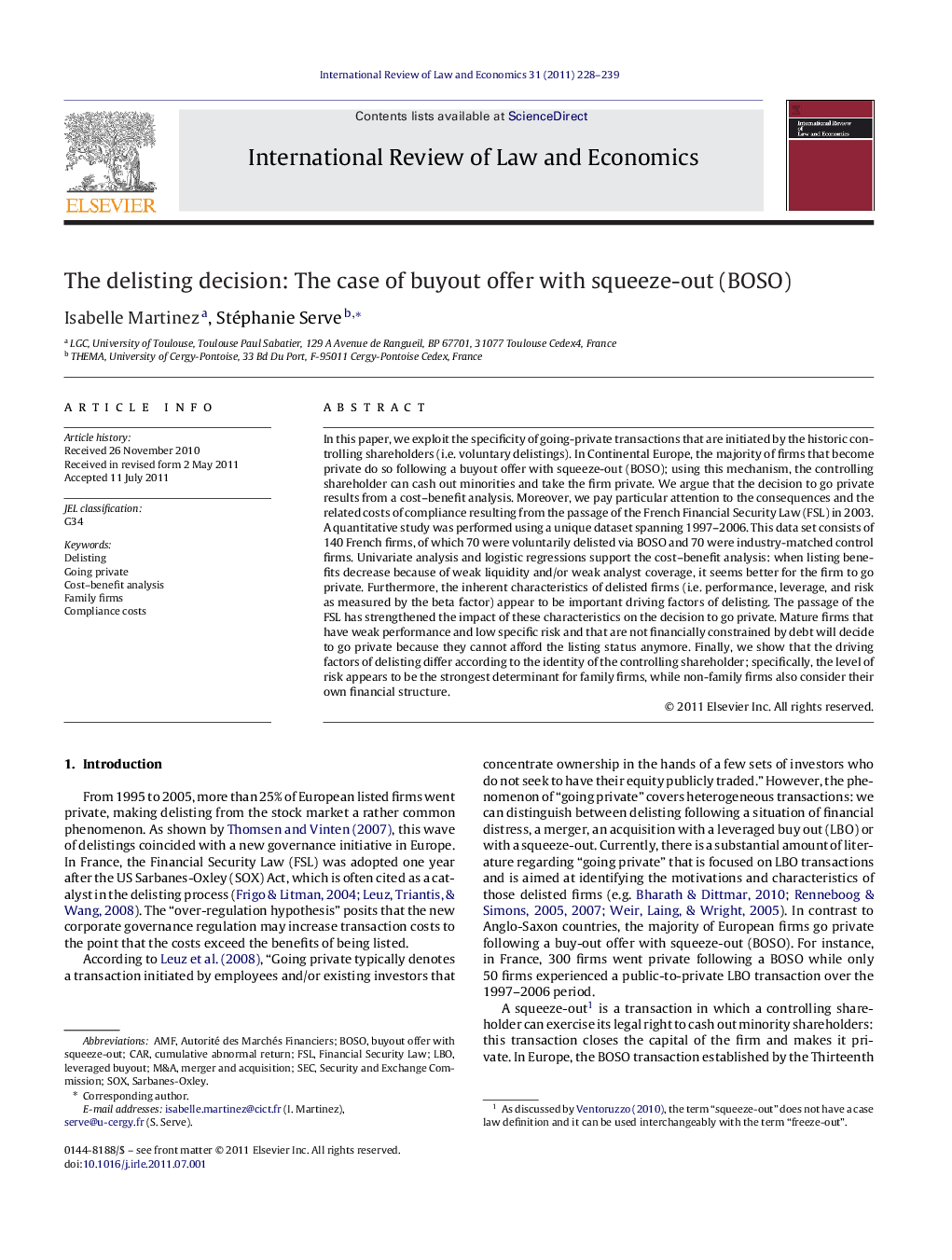| کد مقاله | کد نشریه | سال انتشار | مقاله انگلیسی | نسخه تمام متن |
|---|---|---|---|---|
| 5085714 | 1478073 | 2011 | 12 صفحه PDF | دانلود رایگان |

In this paper, we exploit the specificity of going-private transactions that are initiated by the historic controlling shareholders (i.e. voluntary delistings). In Continental Europe, the majority of firms that become private do so following a buyout offer with squeeze-out (BOSO); using this mechanism, the controlling shareholder can cash out minorities and take the firm private. We argue that the decision to go private results from a cost-benefit analysis. Moreover, we pay particular attention to the consequences and the related costs of compliance resulting from the passage of the French Financial Security Law (FSL) in 2003. A quantitative study was performed using a unique dataset spanning 1997-2006. This data set consists of 140 French firms, of which 70 were voluntarily delisted via BOSO and 70 were industry-matched control firms. Univariate analysis and logistic regressions support the cost-benefit analysis: when listing benefits decrease because of weak liquidity and/or weak analyst coverage, it seems better for the firm to go private. Furthermore, the inherent characteristics of delisted firms (i.e. performance, leverage, and risk as measured by the beta factor) appear to be important driving factors of delisting. The passage of the FSL has strengthened the impact of these characteristics on the decision to go private. Mature firms that have weak performance and low specific risk and that are not financially constrained by debt will decide to go private because they cannot afford the listing status anymore. Finally, we show that the driving factors of delisting differ according to the identity of the controlling shareholder; specifically, the level of risk appears to be the strongest determinant for family firms, while non-family firms also consider their own financial structure.
⺠In this study we focus on going private transactions initiated by the historical controlling shareholders. ⺠We use a cost-benefit framework to analyze the decision to go private. ⺠We analyze the European mechanism of delisting called buyout offer with squeeze out (BOSO). ⺠When listing benefits decrease (weak liquidity, weak analyst coverage), it seems better for the firm to go private. ⺠A low performance, a low leverage ratio and a low beta also appear to be important determinants of delisting.
Journal: International Review of Law and Economics - Volume 31, Issue 4, December 2011, Pages 228-239